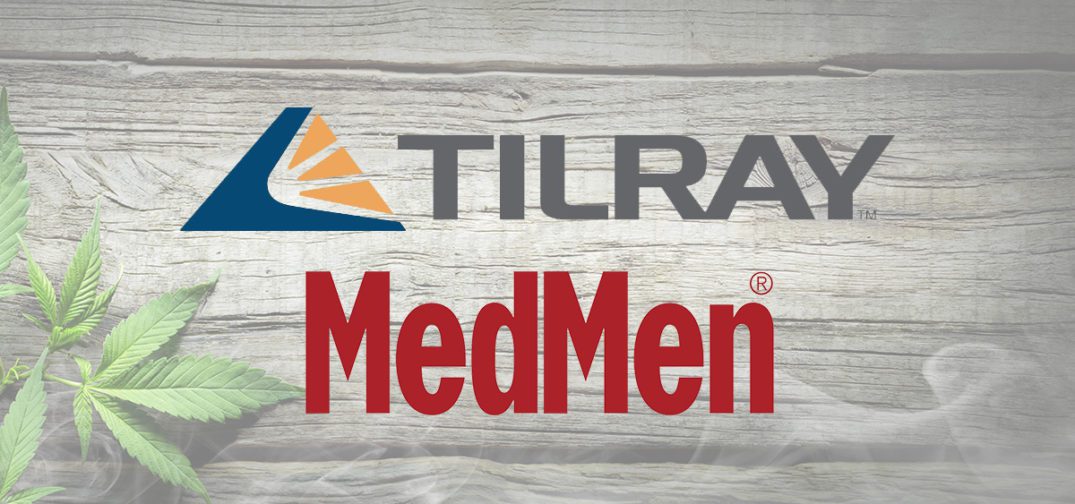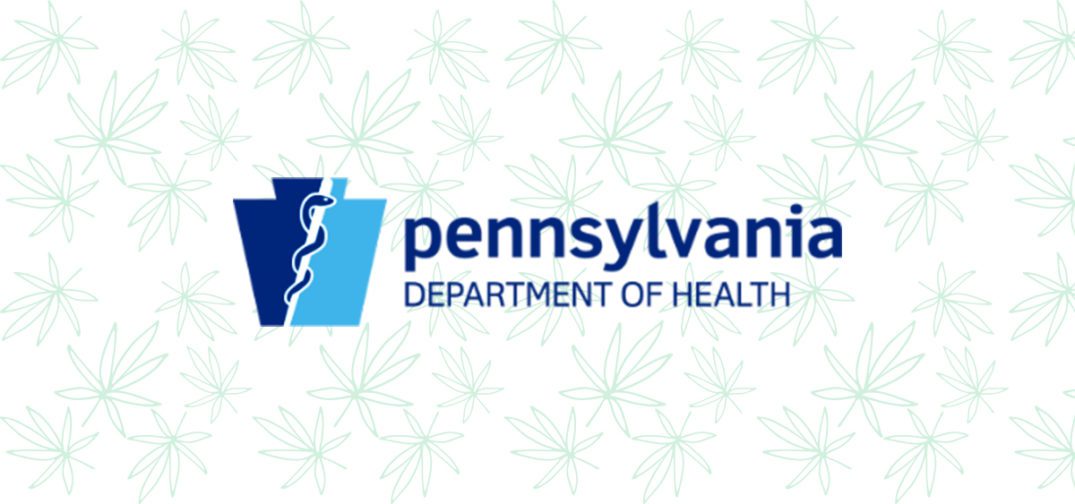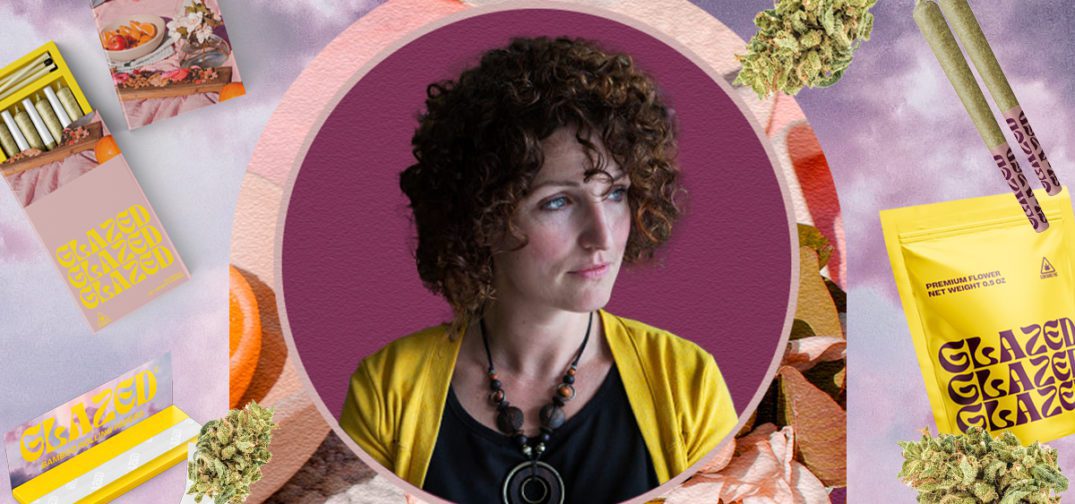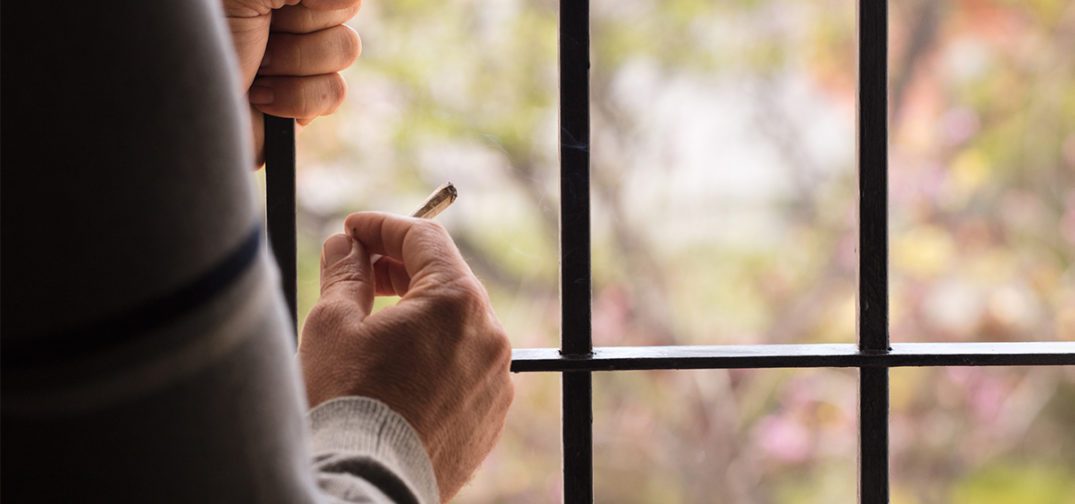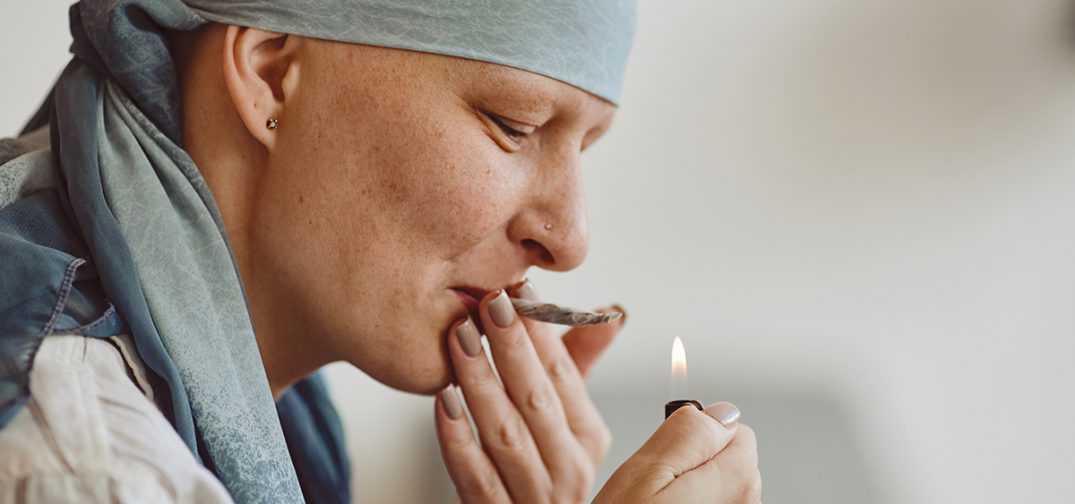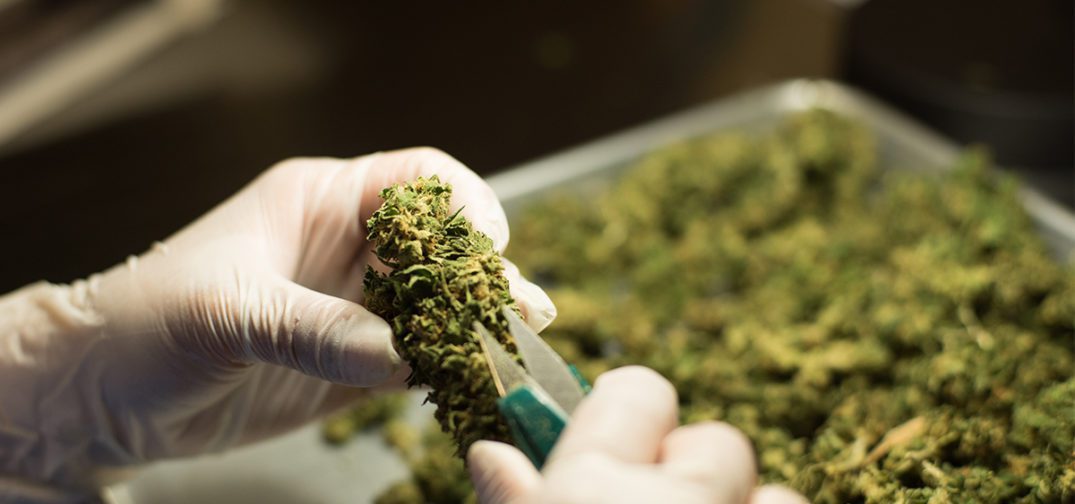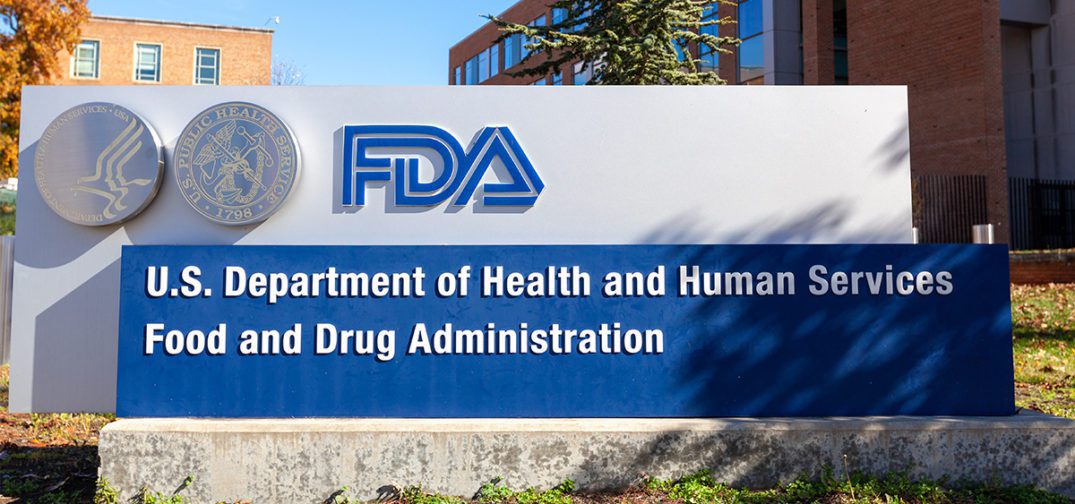Luxury cannabis products constitute a peculiar segment for the cannabis industry: where many consumers might scoff at what they consider an overpriced product, there are many others for whom the added charm (and promise of excellence) is worth the extra cost. To learn more about the growing market for luxury cannabis products, we turned to Sebastien Centner, co-founder of Hervé—a Toronto-based, French cuisine-inspired cannabis brand that currently sells its infused edibles in the Nevada cannabis marketplace.
In this podcast interview, Sebastien joins our host TG Branfalt to discuss his jump from the hospitality industry to cannabis, what inspired the Hervé brand, launching the company’s first product line of handcrafted THC-infused macarons, what attracted Hervé to the Nevada marketplace, the maturation of the edibles market, and more!
You can listen to this interview through the media player below or on your favorite podcast listening platform, or scroll further down to read a full transcript of the interview.
Listen to the podcast:
Read the transcript:
Commercial: At Ganjapreneur, we have heard from dozens of cannabis business owners who have encountered the issue of cannibis, which is when a mainstream business, whether a landlord, bank or some other provider of vital business services, refuses to do business with them simply because of their association with cannabis. We have even heard stories of businesses being unable to provide health and life insurance for their employees because the insurance providers were too afraid to work with them. We believe that this fear is totally unreasonable and that cannabis business owners deserve access to the same services and resources that other businesses are afforded, that they should be able to hire consultation to help them follow the letter of the law in their business endeavors, and that they should be able to provide employee benefits without needing to compromise on the quality of coverage they can offer.
This is why we created the Ganjapreneur.com Business Service Directory, a resource for cannabis professionals to find and connect with service providers who are cannabis friendly and who are actively seeking cannabis industry clients. If you are considering hiring a business consultant, lawyer, accountant, web designer, or any other ancillary service for your business, go to ganjapreneur.com/businesses to browse hundreds of agencies, firms, and organizations who support cannabis legalization and who want to help you grow your business.
With so many options to choose from in each service category, you will be able to browse company profiles and do research on multiple companies in advance, so you can find the provider who is the best fit for your particular need. Our business service directory is intended to be a useful and well-maintained resource, which is why we individually vet each listing that is submitted. If you are a business service provider who wants to work with cannabis clients, you may be a good fit for our service directory. Go to ganjapreneur.com/businesses to create your profile and start connecting with cannabis entrepreneurs today.
TG Branfalt: Hey, there. I’m your host, TG Branfalt, and thank you for listening to the Ganjapreneur.com Podcast where we try to bring you actionable information and normalize cannabis through the stories of Ganjapreneur’s activists and industry stakeholders. Today, I’m joined by Sebastian Centner. He’s the co-founder of Toronto, Ontario, Canada-based Hervé, which sells its luxury cannabis edibles in Nevada. Last month, the company launched Le Mirage, a sublingual hard candy line with a USDA patented refillable storage and dispensing system. How are you doing this morning, Sebastian?
Sebastien Centner: I’m doing great. And boy, that was a mouthful. Congratulations. You got that, you nailed that.
TG Branfalt: Thanks. I’ve done this for a couple of years now, it doesn’t ever get really easier. So I want to know about you, man. What’s your background and how did you end up in the cannabis space?
Sebastien Centner: My background is food and beverage. I grew up in the food and beverage space. I grew up in the restaurant business with my parents. My mother was French from the North of France. So I have got French background, and I always grew up around food. In terms of cannabis, it’s kind of funny. I have a bit of a weird relationship with cannabis because I had not really gone anywhere near cannabis since high school. I had a 20 or 25 year kind of departure from cannabis and it came back into my life really in two ways, one with legalization in Canada, which really sort of brought it to the forefront in terms of it was becoming something that people were talking about. Consumers that we never expected were gravitating towards cannabis were asking about it in our other businesses and our hospitality businesses, but also my father, who recently passed away, he suffered through cancer.
One of the things I learned when I was going through this was that when we were doing a lot of testing in Canada for our products, I started to learn a lot about obviously the benefits of plant medicine and specifically cannabis. So I actually started to get him a gray market CBD from cannabis, a high, high dosed CBD to try and get him to reduce his reliance on opioids and other medicines and morphine, things of that sort. And it actually really was interesting because I thought, here’s something that recreationaly everyone’s really interested in, but then I saw firsthand what the benefits of it were. And those two things combined really, really sort of just sparked something inside of me that got me really excited.
TG Branfalt: I’m sorry to hear about your father. When you introduced him to the CBD, did he have any sort of background in cannabis use or was it really, did you have to sort of force him?
Sebastien Centner: No, no. Well, I mean, he was a little bit reluctant just because he was on so many different things and his doctors could not endorse. They were like, “Listen, if you want to try, absolutely.” They warned us about a couple of things that for any of his surgeries, that it can affect some of the other things that are going on at the same time. So they just said let’s be aware of that. They weren’t negative to it. But funny enough, my parents grew up as like hippies basically. They were hippie entrepreneurs we’ll call them. They met in Paris in the ’60s during the student riots.
They came back to Canada. I even remember my dad used to grow weed in the backyard and he loves to tell us a story about how he had these beautiful, big plants of weed. And then he went to smoking and it was garbage, like it was terrible. It was just shit. Excuse my language, sorry. It was garbage. So they were very liberal. They were very open. They were great about it, but he hadn’t used cannabis in probably 40 years or 30 years or whatever it had been. But he was very open to it. And when we started to see the effects of it, he was even more open to it.
TG Branfalt: Thank you for sharing with me that story. I know that some people it’s very tough to sort of go back to that sort of traumatic time. What was the learning curve for you for migrating from the culinary to the cannabis space? It’s not something that we sort of hear every day. We hear a lot of people going from real estate to cannabis or other sort of tech industry-type things. So how do you move from one to the other?
Sebastien Centner: Well, I mean, all of our businesses, whether they’re cannabis based or not, they start with a passion for food and a passion for hospitality. So that’s where this came from. It was really I met a guy who became my business partner who was probably the foremost dessert guy in Canada. He had a French background as well. We had our factories right next door to each other. I was a big fan of his products and I asked him, I said, “Hey, do you ever put cannabis? Have you ever thought about putting cannabis in your products?” And he kind of looked at me like, “Okay, no.” But he was intrigued and we started chatting and it turned out to be, I’m not going to say it was easy because we’ve spent a long, long time working on how to sort of bring the two things together.
But we kind of bounced on the fact that one of the things we noticed about the cannabis space and we noticed it when I did about a year’s worth of research before getting into this business is that nobody was really coming from it from a food standpoint. Everybody was coming in it from a business standpoint. Hey, we got to make this product because people don’t want to consume by smoking, by inhalables. So how do you come up with something different? And where I epitomized it as is to me it was a little bit like edible cannabis was a delivery mechanism. It was, how do you get high? How do you get cannabis into your system if you don’t want to smoke? And to me, that’s a really low bar, and still the case in Canada, frankly, for most products. They taste terrible. There’s lots of sugar in them. They’re not products that you would buy on a regular basis if you weren’t looking to get that cannabis product into your system.
So we changed that. We wanted to change that. We’ve sort of said, look, if these people, if consumers are out there caring so much about the products that they put in their body, willing to pay a premium for premium quality products in other industries, whether it’s food or beverage or wine, alcohol, fashion, whatever, well, they’re going to start to do that for cannabis as well and the bar is going to get raised and we want to be the ones to do it.
So we started from that and we went back to all of our recipes. We looked at the different products we do, which ones would fit well. Also the fact is that we were very, very… We felt that we never want to mask anything. We don’t want to use or put anything artificial, but we do want to try and have products that really don’t have the flavor, the plant flavors in it. Now, that being said, we know some people like those flavors. So with our newest product, we do have a few products that actually do have a bit of plant flavor in them, but generally speaking, we wanted to achieve something really special.
TG Branfalt: So when you talk about adding that little bit of plant flavor, is there a sort of, what was the learning curve there? Because at first you’re trying to sort of mask it and then you are trying to make it. What goes into that?
Sebastien Centner: Okay. So it’s not so much masking it or adding it back in. And actually, frankly, the last little bit we’ve gotten but we’re becoming much more familiar with, terpenes and a lot of the other cannabinoids and things of that sort. So we’re getting much more sophisticated. But when it came out, I’ll be very honest, in the beginning, we used to take our desserts. We would put a cannabis distillate that was bound with MCT oil into the products. And then we’d give them out to our friends and family and say, “Hey guys, we’re giving you two of these. One has cannabis, one doesn’t. Can you tell which one?” Like it was really, really rudimentary. This is going back years ago before edibles were legal in Canada.
I was kind of playing with this and we decided we don’t want to mask. We don’t want to say, “Okay, let’s increase the flavoring in this,” because then you’ll get rid of that. It was more about finding the right ingredients, that is, the right distillate with terpenes removed, a high quality premium Delta-9 distillate, and then binding it with our products at the right point that you would be able to get really good homogeneity and integrations with products. Like our macarons have zero flavor of cannabis, and we’re not doing anything different. We’re not adding anything to those macarons that we don’t put in our regular macarons except the cannabis. We just put it in at the right point and bind it to the right ingredients to get it to not actually have a really poignant flavor.
TG Branfalt: Now, I’ve seen some pictures of the macarons and I mean, they jump out at you. I mean, if someone who loves dessert loves food, I wanted to just take it from the computer and put it in my mouth. I mean, they look just special. They look special. And in the US, I hear a lot of split opinion about luxury cannabis. Some say, well, it’s just overpriced and packaged in such a way that allows them to jack up the prices. What to you defines a luxury cannabis product?
Sebastien Centner: Well, first of all, people are right when they say that. I mean, just because you take a product that came in a white bottle and you put it in fancy packaging and you call it something neat and you put a bit of marketing behind it, it doesn’t make it a luxury product despite the fact there’s a lot of luxury brands out there that have been successful doing just that. But to me, we look at more of the essence of it. The fundamentals. A luxury product to me has to have a couple of things. First of all, the ingredients that go into it have to be the best in the world. They have to be the best you can find. And in our case, whether it’s the almond flour, whether it’s the cream, whether it’s the fresh pre-race we’re using, they’re always the best of the best of the best. We don’t skimp on anything.
The second thing is that our products are all handmade. Now, we are looking at some ways to automate, for example, the filling and things of that sort, but our shells, which contain no cannabis at all, so the filling is what contains the cannabis, they’re made by hand. They’re gold foiled by hand with a brush. That hand sort of touch to them, personalization, all those things I’m talking about bring the cost of production way up, which means we have to charge more. We don’t have a choice. We lose money. Our packaging as well. Our packaging, of course, cost a lot of money and it’s much more intricate than most cannabis edible packaging, but it’s that whole bringing all those things together that creates a luxury product.
And I’ve seen, unfortunately, now that I’ve been in the industry for a year and a half or so, which I know sounds like an infancy, but we’ve seen a lot. And we see products that we know this product and this product are exactly the same product. It’s coming off the same line. It’s the same recipe. This one’s being put in a really cool box and this one isn’t, and this one’s being charged a premium. We know that’s happening and we realized that unfortunately consumers are not educated enough about cannabis products, much more so in the US than Canada, but that’s going to happen. They’re slowly getting more and more educated and as they are, they’re not going to pay a premium for a product that is not premium.
Just like if you were, I don’t know, if you were a fashion consumer and you decide you’re going to buy a Louis Vuitton or a Hermes purse, like listen, if you want to spend that kind of money on it, then that’s fine, but that’s something you’re going to hand down to your grandchildren, to your daughter or to your granddaughter or whatever else. If the stitching comes out two weeks later, or a month later, if you can buy a product that looks almost the same and just as good quality by another brand, you’re going to stop buying from them. So we really have to deliver on the promise of a luxury product. And if we don’t deliver on that promise, we’re not a luxury good.
TG Branfalt: You mention that you’ve only been in the industry for about a year and a half, which you said sounds sort of infancy, but I mean, the industry itself is in its infancy. In that year and a half, what’s been sort of the most striking thing to you about the cannabis industry?
Sebastien Centner: So it’s two things. Actually no, it’s a lot of things. I’ve got to say for a guy who’s been in business for 20 years in the hospitality business, I thought I’d seen everything and done everything, boy, I was in for a bit of an awakening. I think there’s a few things. First of all, it’s exciting. That’s the first and foremost. I think the whole fact around plant medicine around cannabis becoming part of your regular lifestyle, to me what’s happening every single day and we hear about it on your podcast, we read about it in your newsletter, every day something exciting is happening to make it more mainstream. And to me, that is super exciting. This is when we’re all going to look back and be able to tell our kids, our grandkids, whatever, that we were a part of this. That’s exciting.
The second thing that is really exciting to me is that I’ve never been in an industry, ever, that is this collaborative. And by that, I mean that people are willing to make introductions. They’re willing to answer questions. They’re willing to help you out. Any other industry is so closed minded and so competitive. Not that cannabis isn’t competitive and it’s getting more competitive, but there’s that collaboration. And to me, that’s really exciting because I’ve met so many people through this business who have just been so kind to us and so open and so willing to share information that we wouldn’t be where we are today if it wasn’t for them, and they don’t expect anything in return except obviously if they ever called us and asked for a question, whatever it was, we do the same for them. So that collaboration is great.
The one area where I think we really are going start to see an evolution is in terms of the level of professionalism. I think that because a lot of people are legacy cannabis entrepreneurs coming from the gray market, coming from the black market, they’re starting to learn how to work in a corporate environment. And listen, I don’t ever want it to be that the passion is lost because that’s what makes this business what it is. But we are going to have to up the level of our professionalism, whether it’s our cost controls, whether it’s our structures, whether it’s all those kinds of things, because what I think is going to happen is more and more mainstream business, more and more mainstream business people, more and more CPG people are going to start coming into this business.
And the one thing I would hate to see is to see the people that started this get eclipsed because it’s become too professional or too corporate. So I think there’s a way to do that. And some people have done that amazingly well, and I think that that’s where we have to all work together to help each other out. I help a lot of people that I work with in this business by something simple like showing them how to use a spreadsheet or how we do our scheduling or how we do our costing. That’s important to us and I think it elevates the entire industry.
TG Branfalt: I think that’s a really astute insight for being so sort of young in this business. So as a Canada-based company, why did you choose Nevada as your foray into the US market? I know that you have operations in Nevada, so it’s not like you’re transporting stuff, but why Nevada as opposed to say a more mature market like California, Colorado?
Sebastien Centner: It’s a good question. We originally wanted to launch in Canada, I’ll be very honest. We thought, let’s launch in our own backyard. There was financial reasons for doing it. It’s our own backyard. All of our other businesses are based there. When the cannabis legislation came down for Cannabis 2.0 in Canada, we realized that wouldn’t be possible in its current form. We realized there was a lot of challenges. We could get into that, but it’s a bit of a rabbit hole. So we started to look at the US and we started to look around the US and I spent a lot of time traveling around and seeing these markets like Colorado, like California.
The reason we picked Nevada was because when we first had this idea of launching as premium or luxury cannabis company, everybody said we were crazy. Everyone said there’s no way people are going pay a premium. “Oh, your macarons have to be frozen when they get to the dispensary.” There’s no way that’s going to work. There was a million reasons why it wasn’t going to work. When we looked at each market, we looked at them and we said, “Well, what are the challenges we’re going to be facing and where do we have the lowest hurdles to getting through those challenges given we’re a small company?” We like Nevada because they’ve understood regulations for so long with gaming that even though their cannabis legislation is a little bit all over the place, it’s quite frankly much more streamlined than a lot of other places, like simple thing.
In Nevada, we found that if they change the packaging rules, so when they changed it from saying marijuana to cannabis on the boxes, you had six months to get rid of your existing packaging. In California, recently with the proposition 65 95, I always mix up the two, they said almost overnight you have to list this if you have any ingredients that fall into this category. Now we don’t. So it didn’t matter. It doesn’t matter to us if we’re in that market, but for everybody else, all of a sudden one week to the next, you’ve got hundreds of thousands of dollars of packaging that go in the garbage. So one was the access to the market and the risks.
The second thing is that Nevada, especially Las Vegas, provided to us almost like a vacuum test center to do a proof of concept. We get luxury consumers from all over the US, from all over the world for that matter. It’s a great place to build a brand. People go home and they start talking about it. But it also is much more contained than somewhere like California. I would love to launch in California. We’re actually just in the midst right now of talking about our California launch. But as a first market, I heard from people it’s like the wild west and there’s big players. It’s very, very, very risky.
And we didn’t have the kind of deep pockets to say, “Hey, let’s throw millions of dollars at this and make it work.” We had to do it in a contained environment and Nevada to us in Las Vegas was just a perfect environment. We got that validity by putting it in and seeing people pay that premium and the reaction, not just like the media and other people but the budtenders who are the hardest to convince. They’re the high dose users. They don’t like premium products because they feel they’re a rip off, whatever else. We were giving these to budtenders who were eating them and saying, “Oh my God, I’ve never ever tasted anything like this.” And then not only selling it, but also using it for themselves. Maybe not as their main consumption vehicle, but as like a little splurge. And to us, that validation was really, really important and that’s why I think Nevada was a great place for us to launch.
TG Branfalt: Again, I mean, really interesting insight. I’ve spent several weeks, not consecutively, in Vegas, and one thing that I do remember very distinctly is the luxury market that exists there for a variety of products. So I think it’s a very keen sort of business move for somebody who admittedly is early in this industry. I want to talk a bit about the Le Mirage product. What sets it apart from other edible options?
Sebastien Centner: When we launched, we have a whole bunch of products that we put cannabis in. There was these beautiful moose desserts. There’s everything. The macarons, the reason we launched with macarons was because they have the ability that despite the fact that they’re frozen, to have really, really good stability, meaning that they can go from being frozen to room temperature to being left in your hotel room for four or five days, going back in the fridge. And it doesn’t affect, they’re not like other products where they don’t melt or go bad, things of that sort. So it was the right product to launch with because it was so special. We always wanted to launch a room temperature stable product, and we’d played with gummies and chocolates and mints. All things we’ve done before we do in our main businesses.
The reason we created Mirage was because we felt that in addition to doing a product that had the foundation of Hervé, which is great quality products, flavor, like no sugar or no process, no added sugar, gluten-free, vegan, all those sorts of things, as a hard candy, we felt that we also needed something else. We needed to make it special in another way. So it wasn’t just another hard candy. And we came up with Mirage because we kept being faced with the fact that despite in Canada where consumption publicly is not a problem, most of the US states, it’s a big problem. Like if you look at Nevada, which is one of the most advanced states in terms of legalization, you still can’t consume on the street. You can’t consume in a restaurant or in a club or by the pool, or you can’t take cannabis into the hotels.
So there is still this discretion that is needed when you’re consuming cannabis. So we tried to bounce between those two things, provide a stylish discreet option for people to consume cannabis edibles, but also balance that with creating a product that was different than anybody else was creating. So Le Mirage is a hard candy, which means it’s sublingual. So it means it kicks in a little bit faster because it doesn’t go through your liver, it goes through your bloodstream. It is vegan, it’s gluten-free. We use no processed sugar whatsoever, which means that every portion is less than two calories, but also it has a glycol index of less than two.
So it’s very suitable for people who have to have low sugar diets. We can’t officially say our product is right for diabetics, but there’s a lot of diabetics, a lot of people with medical conditions that require them to have low sugar that cannot find a gummy or a chocolate even or a hard candy that’s suitable for them. We wanted to offer something very special that people would really, really gravitate to putting in their bodies because the ingredients are all great, combined with how do we do it in a way that people can discreetly carry it on them and pop a piece off and enjoy it.
TG Branfalt: Yeah. And to your point, I mean, a lot of the edibles that I get from legal markets are sprinkled with sugar. And it’s just almost sort of a turnoff if you’re not in the mood for that much sugar but you still want to get that low dose. And you also created a dispensing mechanism for this product and you did show it to me before we went live. My first reaction to seeing it was that, wow, like the ease of use for this compared to some of the other childproof sort of containers that you get in legal markets. Why was it important for you to also create this dispensing mechanism? You said you went through 20-something iterations before coming up with this one.
Sebastien Centner: Yeah. I mean, it was 27 I think our last count, 27 prototypes. We also accelerated. We were supposed to launch this in December of 2021 and we actually accelerated it from an 18 months development cycle to about seven months because we wanted to get it out by Christmas time. But the reason why it was important to us is because we felt that… I believe very strongly that you have to hit a whole bunch of markets. It’s not just about putting a product out there that might have one asset or one feature. It’s about having a lot of different features. And for me, I’ll play with it while I talk about it. But the Mirage gave us the ability that I talk about your daily life. I talk about going to a restaurant, going to a club. I talk about perhaps that person that consumes cannabis because they’ve reduced their alcohol intake and they prefer cannabis.
Well, how do they at a dinner party when everybody else is drinking vodka, sodas or wine or whatever else, how do they discreetly pop a little candy? Now, with the chocolate nowadays, you’re carrying around what, a tinfoil that’s got a bunch of chocolate pieces in it, gummies. The best I’ve seen is there’s some great companies out there with tins and whatever else. But what does that look like at a concert or at a dinner party, et cetera? It’s just not conducive to your regular lifestyle. It’s not something you would ever carry around. Mirage to me is something that a woman can put in her purse, a guy can put in his pocket that really builds into your regular lifestyle.
And what I found is really interesting is that, one, we’ve had just tremendous response to it. People just absolutely love it. And of course, with COVID, especially in Nevada where the clubs are all closed and the day clubs are closed and the restaurants are limited, we’re not seeing people use it as much as they will when things come back, but we wanted to launch it early enough so that people started to get used to it. Buying a dispensing system that is a refillable dispensing system has never been done in the edible space before. It’s been done with vapes, it’s been done with razorblades. So people have to start to get used to it. You buy the dispenser once, the dispensary sell it from anywhere from $5 to $10 they sell the dispenser for, and then you buy your inserts over and over and over again. You amortize it over the life of the dispenser, which can be 40, 50, 60, 100, 200 inserts.
So that was something that was really important for us to start to get out there and get people used to because we knew it would take some getting used to. And we’re very, very proud of the fact that it’s there. Now it’s just becoming more mainstream getting people this to be their system. One of the things I’ll point out which we did not expect is we never expected our products to really cater to the heavy user, the legacy user, who’s generally using smokable products and inhalable products. What we found is that all of a sudden our products are, even though they’re in a premium price point.
If you look at Mirage, a lot of the budtenders that we speak to, they’ll say to us if I have to go to my girlfriend’s parents for dinner, I smoke before I get there, but God knows I can’t sit through four hours with her parents without smoking or whatever else. Well, they carry Mirage. What do they do? They discretely pop one in and et cetera. Maybe they pop onto their girlfriend too, and all of a sudden the future parents-in-law seem a lot more manageable. We love hearing those stories because it really gives us that validation that what our vision was is actually happening slowly but surely.
TG Branfalt: Well, and I think another thing about having the reusable one is the waste that the cannabis space has created. You go to Massachusetts and you buy four edible products, you walk away with five pounds of packaging. So I think this moving towards a reusable is really, really good for the industry’s sort of footprint, the energy footprint as a whole, which is really exciting to me. You had told me about that you chose not to launch in Canada because of the restrictions on edibles. Can you tell me a little bit about those restrictions and whether or not there’s any chatter about reforms on those rules?
Sebastien Centner: To us, it was a really disappointing time in our launch of Hervé when we saw the Cannabis 2.0 legislation come out. Listen, no offense to the government, I think they legalized very quickly. They did lots of great things, but it’s almost like they approached it from a point of view of saying, “Look, if you are a cannabis company that wants to make edibles, let’s assume you’re less responsible than a dairy company or a catering company or a any type of food service company and let’s give all these restrictions.” And I get it, slowly and surely. But to your point, the first one was the footprint, the carbon footprint of the packaging. In Canada, the maximum dosage you can provide in a single package is 10 milligrams. And generally gummies are about five milligrams each.
So you’re getting a bag or a box, generally a box of this big, that has got two gummies in it, 10 milligrams. Like it makes zero sense. The packaging alone is just probably 20 or 30 times what it should be. And even that, as you mentioned, the US isn’t great. So that really, that was one of the issues. The second issue is the room temperature stability. So in Canada, you’re required that all of your products have to be room temperature stable in the true form, which means they have to be able to sit on the shelf, which means effectively all you’re ever going to really see is gummies and chocolates. Maybe some mints eventually, hard candies, of course, but our macarons would never pass the sniff test.
Now, our macarons have a six month shelf life according to the state of Nevada. When frozen, we know that they last well over a year and at room temperature, they last probably three, four weeks. And it’s not that they go bad, they don’t go bad. They just will get crunchy. There’s not that kind of flexibility. And what I loved about the US is that when you… And not every state because Colorado, California and Nevada are great. Michigan still doesn’t have room temperature stability. It just passed it for beverages, it’s coming for other products. But in Canada, there was just so many hurdles and restrictions that to get to market would have been so challenging.
And then when you get to market, it was such a segregated market in terms of at the time we had 40 dispensaries in Ontario. Now we have 200, but I think we’re supposed to have about 600 or so just to have the per capita that California does or Michigan does or Nevada. So there’s a lot of things like that that we looked at and said we either have to completely change the ethos of what we believe in, make our products room temperature stable, which means use preservatives in them, take away some of the great ingredients we use like the fresh creams and fresh purees and use artificial, do all that. And we got to dumb down the dosing on it, and then we have to charge so much money for it that as far as I’m concerned, we are not providing a great product at a good value, be a premium or not. And that’s when we started to look at the US.
TG Branfalt: Is there anyone working on reforming those rules or do they seem to be sort of in stone for the foreseeable future in Canada?
Sebastien Centner: It’s a good question. Not that I know of. I know that there’s talk about it. There’s talk about the carry limits. Like you can go in and buy a certain amount of flour, but in terms of edibles, it’s like one 20th of the amount when you translate it. I think in Canada we’re more worried about like let’s get the country open and start getting people vaccinated, frankly, which even our government isn’t able to do. They’re incapable of doing that. So I’m thinking that cannabis reform in general is really on the back burner. We probably won’t see anything notable happen for another year or two, at least. And I think it’s unfortunate because we started out with such momentum. Maybe a little bit of arrogance we’re going to be the cannabis suppliers to the world.
But what we haven’t done well is we have not progressed as quickly as a lot of the US states, and I think that’s going to mean that we’re lagging behind and you can already see that in some of the markets. I think I just read a report that last month for the first time ever, edible production for one month in Canada exceeded the demand, which means we’re producing more products than people want. I mean, there’s problems there. It means our distribution isn’t good. It means the products, frankly, are not good enough because now people are getting used to it.
And the problem with that is that if you cannot move legalization forward, then you really can’t eliminate the gray market, the black market. People can get better products on the black market when it comes to edibles for the most part and they give them faster and better dose in Canada than they can in the legal market. So if that continues, we’re not going to see that transformation to legalization quickly enough. So I hope they make changes to it. I feel for them because I’m sure that whoever the people are behind all of this are trying their best to move things forward. But I just don’t see it moving as quickly as the US and we like the excitement of being in the US.
TG Branfalt: You mentioned the Canadian lockdowns, the pandemic-related restrictions. What was the impact on your business throughout the last year dealing with the pandemic?
Sebastien Centner: I mean, we’ve been shut down since October 15th, effectively all of our businesses. I know this is a hot button issue because you’ve got some states where they’ve really reopened completely and other states that are locked down. But if you look at something like New York, your home state, I mean, New York City indoor dining I think just recently reopened. I think there’s ways to do it safely. But I think the biggest challenge we’ve had is that our businesses, and we’re in the hospitality business, can’t really start to pick up and go back to normal until we see at least the potential end of the pandemic. And when is that going to come? It’s going to come when we have enough, whether it’s vaccination or herd immunity or all these things combined, and we have to slowly and cautiously do those things.
And in Canada, we’re not seeing that at all. Like in Canada, you just read about it. We’re implementing more and more strict measures. We have a Northern zone of Ontario I read about just the other day that had some cases in the Southern tip and they shut down the entire zone, and you’ve got mom and pop restaurants and whatever else that have been suffering through that. They can’t pay their rent with subsidies sort of coming but not really coming, but same time you can shop at Walmart. You can shop at Costco.
So I think in Canada we really need to put pressure on our politicians. Canadians in general, by the way, we’re much more complacent. What I love about Americans is they get up and they’re like, “Nope, we’re not going to stand for this. We’re not staying home. We’re not closing our businesses.” Now, maybe it goes a bit extreme sometimes, but we need to do that more as Canadians because with, excuse me, I might get a bit personal, but with the drama teacher as our prime minister, we need to make them a bit more accountable.
TG Branfalt: No. To your point, I mean, in the US, cannabis dispensaries were considered essential services. Was it the same in Canada?
Sebastien Centner: It did. It kind of flip-flopped. They didn’t. And then everyone was like, well, hold on a second, how’s the liquor store an essential service and the dispensary isn’t? So then they flipped to it. And then they said, well, no, you know what? You can do curbside pickup, and then you can do this. They kind of go back and forth, but frankly, it’s just been a complete mess.
TG Branfalt: I want to move away from the coronavirus, and thank you so much for your insight here.
Sebastien Centner: No problem.
TG Branfalt: Tell me about your partnership with Silver State Wellness and how it helped you enter the US market?
Sebastien Centner: Yeah, Silver State are awesome. We operate under a co-packing model, so we develop these amazing products. We develop this brand, but we really rely on our partners to execute them in each of the markets. So even though we have a presence in terms of marketing, in terms of support and all those sorts of things, we always have to be partnered with a licensee. And that’s what we are looking at for other markets as well, like California and Michigan and Colorado and a bunch of other places. Finding the right partners is truly key because, one, we’re not just creating a regular product, especially with our macaron. So our macarons, they need a lot of love. They’re not an easy product to produce even though we make the shells. So all they’re doing is the fillings, but they don’t prescribe to the regular standard of making edibles.
So somebody has to look at that and have the skill and the passion to want to do something different. Our Mirage is a little bit different. In our Mirage, I think Silver State was pretty happy to see that come along because unlike the macarons that everything’s done by hand, our Mirage products are made in the same format as a gummy. So any gummy line can produce our Mirage products, our inserts. That’s great because all of a sudden we can bounce between getting our partner to do something that’s not easy to do to do something that they’re used to doing, and the economics start to work out, et cetera.
Also I got to give some shadow. It’s like we’re very fortunate. There’s a great team at Silver State. They’re tremendously passionate about what they do. Their sales team is led by a woman named Casey, who is the best thing. She’s the best thing since sliced bread as far as I’m concerned. When it comes down to that, it comes down to meeting really great people who share our passion because when you run into challenges, that’s when you’re going to be able to overcome them by having great partners who are sort of like, how do we solve this problem?
How do we solve the problem that, for example, a couple of dispensaries we were working in said, “Well, your freezers are not certified with the state board.” We’re like, “Well, they don’t have to be. They’re certified with the federal board to be used for food service.” They said, “No, no, no. We want certification.” Well, silver State were the first ones to take our specific freezers, deliver them to the state with all the information to get stamps. So we’re the only people in Nevada now that has had freezers that are actually certified to be in dispensaries. Those kinds of challenges we could not have gotten through without great partners. And when we go to other markets, we’re looking for the same type of partnerships. Partnerships that are mutually beneficial, but with people that are very passionate, as passionate as us about what they’re doing.
TG Branfalt: Did you experience a lot of roadblocks when you went to somebody and said, “Hey, we want to work with you to deliver these macarons, but they’re done my hand.” Did you have a lot of pushback and trouble finding a partner because of that?
Sebastien Centner: We did. I mean, when we launched our company, everybody told us we’re crazy. You’ve got a product that has to be frozen at the dispensary Qsomebody who’s looking just for the economics of being in the cannabis business because it’s not an easy business to be in, but I think it’s going to raise the entire industry and I’m very excited for it.
TG Branfalt: As somebody with a culinary background, are you eyeing the sort of days when you’d be able to go into a restaurant that is just serving cannabis-infused dinners?
Sebastien Centner: Yeah, 100%. Well, think about it. If you’re doing a dinner party in Toronto or Nevada or whatever, why wouldn’t you have a macaron at the end of dinner instead of, I don’t know, a around of tequila shots or whatever you’re having? Why wouldn’t you have an infused olive oil on your salad to start? I mean, there’s so many things you can do with it. I understand the trepidation. I understand that all of these legislative bodies are sort of looking and saying, “Okay, let’s slow it down. Let’s slow it down.” And I agree. I think that educating people, being very, very mindful of children and cannabis and underage use of cannabis and things like that are really, really important and I understand why they’re not rushing, but I see a day very soon where we will be able to all sit around, maybe drink a great bottle of wine, have dinner, and then at the end of dinner say, “Oh, you know what, let’s have a macaron.”
Our macarons right now use distillate. So they take 45 minutes to an hour to kick in. But with emulsified product, with all the new things coming down the pipeline that we’re very much very excited for, we’re watching very closely, you’ll be able to take that macaron and you’ll see the effect within 10 or 15 minutes. That’s going to be the future of it and I think that day is going to come a lot sooner than any of us think, just from the acceleration we’ve seen in the last 18 to 24 months.
TG Branfalt: I personally can’t wait for the day where I can have cannabis-infused olive oil on a salad. With your sort of really unique background, I think, entering this space, what advice would you have for other entrepreneurs who aren’t from the cannabis industry and have already developed successful businesses outside of the space looking to enter the cannabis space?
Sebastien Centner: That’s a good question. I love to share, like in Canada in the hospitality business, I’ve always tried to sort of share whatever advice I can give and mentor younger people coming into the industry and stuff. And with cannabis, I hope to do the same one day. I would say if you’re coming from a non-cannabis background and you’re moving into this business, or even if you are a legacy user and you’ve got a business idea, be aware of a few things. First of all, it’s challenging. It’s always an uphill battle and it’s going to be way more challenging than you’d ever expect. It’s also going to cost way more money than you ever expect. I mean, that’s just the nature of a new evolving industry where things change constantly.
We’re all going to make mistakes. I’ve made more mistakes in the cannabis business in a year than I think I’ve made in every other business I’ve been in in the last 20 years. So you’re learning, you’re developing and creating a path for others that will follow. So there’s that. So be patient about that. The only real piece of advice in terms of what I personally use to get through all of that is baby steps. Take one step forward on each thing one at a time. And if that means getting your company incorporated, figuring out how you can do your banking, understanding the different options you have for packaging, understanding the different production things you can do and testing different. Take little, little, little, little steps. Every one of those thousands of steps you take is going to take you a mile closer to your goal.
And if you try and leapfrog those, which you can in other industries, cannabis you just can’t. You just can’t say, “Okay, well, tomorrow I want to launch this. So here’s what I’m going to do.” I see a lot of people, I listen to a lot of podcasts and recently on, oh, I forget the name of the new service, I’m sorry, but the new social media service everybody’s going nuts over that you can listen to different entrepreneurs and stuff like that. And I always get a little bit cringed when somebody says, “Oh, just go out there and do it.” Well, yeah, just go out there and do it, but plan. Do the little steps because what I hate to see is somebody embark on a passion project, leave maybe a stable job, do something that they’ve always loved and then fail. You don’t want that.
And so they need good advice. They almost need to be held back at the reins a bit, as people did to me, to say, “Hey, let’s just take the steps necessary. Let’s not get too excited about it. And when you make mistakes, don’t worry about it. We’re all making mistakes.” We’re the forerunners in this entire industry and the people behind this are going to make a lot less mistakes thanks to the mistakes we made.
TG Branfalt: I think the baby steps thing is really, really good advice that people get so excited that they start running instead of walking. And so I really appreciate your insight there too. Where can people find out more about you, Hervé, Le Mirage or macarons. Tell us where to find.
Sebastien Centner: Sure. Well, I mean, we’re in about half the dispensaries in Nevada. So all the big ones, Planet 13, Jardin, MedMen, LVR, there’s a whole bunch of them, Ayr, all their dispensary and mint dispensary. So go to any of those, you can check it out. Check out their websites because they have all of our products and it’s a great way to see it. Visit www.hervé.fr. So that’s our main website. It shows all of our products. It tells you a little bit about what we’re doing. Most important, follow us on Instagram, Hervedibles, only one E in the middle. That’s the only thing. So Hervedibles is our Instagram. We’re communicating with people constantly.
You have a question, if you’re an entrepreneur getting into this business, hey, send us a message on Instagram. I get all the messages through our marketing person and I respond to most of them. My Instagram is @SebCentner, even though it’s my main kind of hospitality business, everything like that. Again, I love answering questions for people and just connecting. If you have a question, if you have an idea, if you think we’re doing something right, if you think we’re doing something wrong, let us know. If you get to try our products and you love them, or if there’s something you think we should be doing different, let us know. This is all about communication and collaboration.
TG Branfalt: Once I decide to get on a plane, I very much am hoping to go to Nevada and I will be on the lookout for macarons because I get very excited about food. That’s Seb Centner, he’s the co-founder of Toronto, Ontario, Canada-based Hervé which sells its luxury cannabis edibles in Nevada. Last month the company launched Le Mirage, a sublingual hard candy line and a USDA patented refillable storage and dispensing system. Seb, this has been very informational. You’re a lot of fun. Thank you so much for coming on the show and I definitely hope to get a macaron in my mouth before the end of 2021.
Sebastien Centner: I certainly hope so. You’ll let me know when you’re coming to Vegas and we’ll make sure we meet up and have a macaron together, but thank you for having me on. Congratulations on all the success for the podcast and keep it going.
TG Branfalt: Thank you kindly. You can find more episodes of the Ganjapreneur.com Podcast in the podcast section of ganjapreneur.com on Spotify and in the Apple iTunes store. On the ganjapreneur.com website, you’ll find the latest cannabis news and cannabis jobs updated daily along with transcripts of this podcast. You can also download the ganjapreneur.com app in iTunes and Google Play. This episode was engineered by Trim Media House. I’ve been your host, TG Branfalt.
